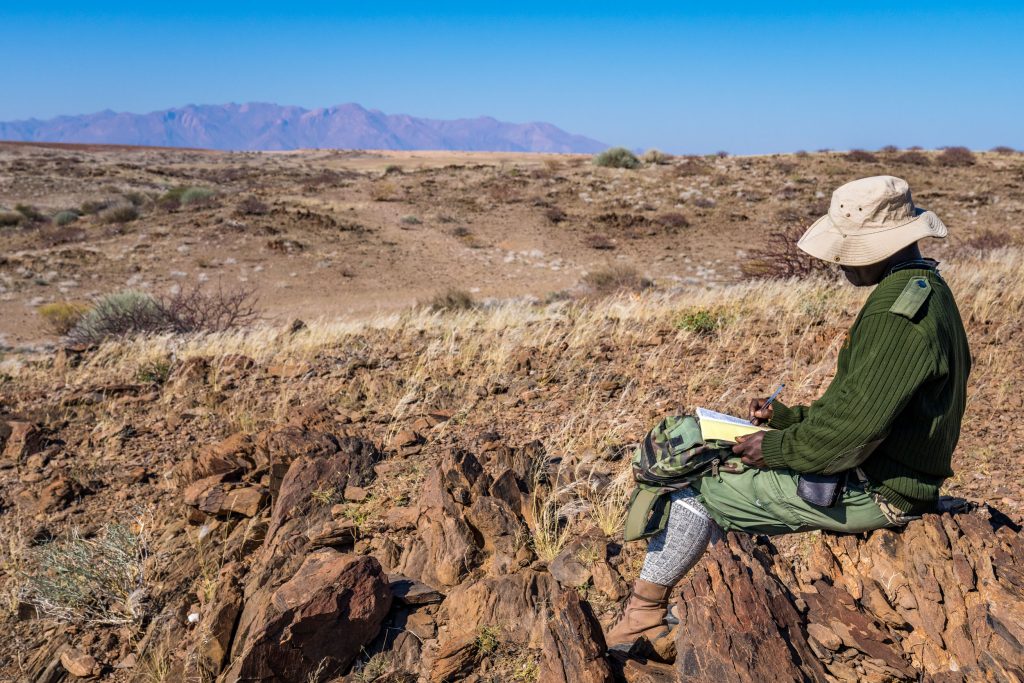Kenyan wildlife rangers are gearing up to join their African counterparts in fifteen countries to mark World Ranger Day this weekend.
The 2022 Wildlife Ranger Challenge, organized by Tusk, is a multi-million-dollar fundraising initiative and series of challenges that will culminate in a 21km half marathon on Saturday September 17.
Slated for July 31, World Ranger Day will see 150 ranger teams across Kenya and other 15 African countries including Cote d’Ivoire, Gambia and Nigeria join hands with their counterparts in Africa to support the 2022 event.
This year’s race day will coincide with the African Ranger Congress taking place in Kasane, Botswana, at which Tusk and its partners, the Game Rangers’ Association of Africa, and NATURAL STATE, intend to bring together delegates to take part in the Challenge, with a view to setting a new Guinness World Record for the fastest half marathon carrying 22kg.

The race will be accompanied by a series of mental and physical challenges, with the public in Africa and around the world encouraged to participate alongside the rangers. A new element this year will be a mini challenge for ranger teams with canine units, in which dogs and handlers will demonstrate their tracking skills. Find out more, donate to the cause and sign up to run in solidarity with Africa’s rangers at wildliferangerchallenge.org
The Challenge
The Wildlife Ranger Challenge was established in 2020 at the onset of the COVID-19 pandemic to alleviate some of the devastating effects that the virus was having on the livelihoods of Wildlife Rangers throughout Africa and the animals they were responsible for protecting.
This year’s Wildlife Ranger Challenge will have a bigger impact than ever before. The Challenge will seek to correct misconceptions of the role of rangers and support the development of the entire “rangering” profession. To support this goal, Mark Scheinberg and the Scheinberg Relief Fund, the Challenge’s founding donor, has generously committed $1 million in match-funding in support of rangers, on top of the total $6.5 million to the campaign to date.
Mark Scheinberg, Scheinberg Relief Fund says: “We’re extremely proud to be supporting the Wildlife Ranger Challenge in its third year and highlighting the varied role of rangers in Africa. It was a personal pleasure and honour to meet dozens of rangers in Kenya last year – truly local heroes. Without their daily dedication, wildlife in the region and across Africa would not survive. I encourage anyone who wants to preserve African wildlife and support the men and women that protect them, to join this year’s Wildlife Ranger Challenge.”
A survey conducted by Tusk at the recent Tusk Conservation Symposium found that the top five threats to conservation over the next ten years include habitat loss, human-wildlife conflict, and climate change. The skills needed to meet these challenges are indicative of the changing role of wildlife rangers. Yet, despite the multifaceted nature of the job, rangers are often misunderstood as just a man with a gun chasing poachers.
The Wildlife Ranger Challenge 2022 will spotlight the ever-diversifying role of rangers to demonstrate their broad roles as conservationists, teachers, community support workers and leaders, contributing not just to protecting wildlife and supporting their immediate communities, but to global UN Sustainable Development Goals.
As the Challenge develops, it aims to become a movement to drive the recognition of rangering as a profession, build camaraderie amongst rangers and their colleagues across borders, and drive improvements for the welfare of rangers in the field across Africa.
Benson Kanyembo, Law Enforcement Adviser for Conservation South Luangwa (Zambia) says: “The threats facing wildlife and the natural world are only growing. As well as poaching, these days we also have to improve human-wildlife coexistence while at the same time addressing the impacts of climate change and population growth on land use. As rangers, we’re doing more than ever to protect Africa’s wildlife, despite the funding challenges created by COVID-19. To ensure we can continue securing a future for Africa’s wildlife, we need greater support as we not only rebuild post pandemic but develop and expand our impact.”










You’re a beautiful person for sharing your story with us! telephone bell ringtone download mp3
I appreciated reading this post!
relaxing
ventolin 100: Buy Ventolin inhaler online – ventolin price in usa
buy ventolin over the counter uk
ventolin best price: Ventolin inhaler best price – ventolin best price
purchase neurontin: neurontin brand name 800 mg – neurontin generic south africa
neurontin 100mg tablets: neurontin 330 mg – neurontin price
best online pharmacy india: п»їlegitimate online pharmacies india – reputable indian pharmacies
indian pharmacy: buy prescription drugs from india – indianpharmacy com